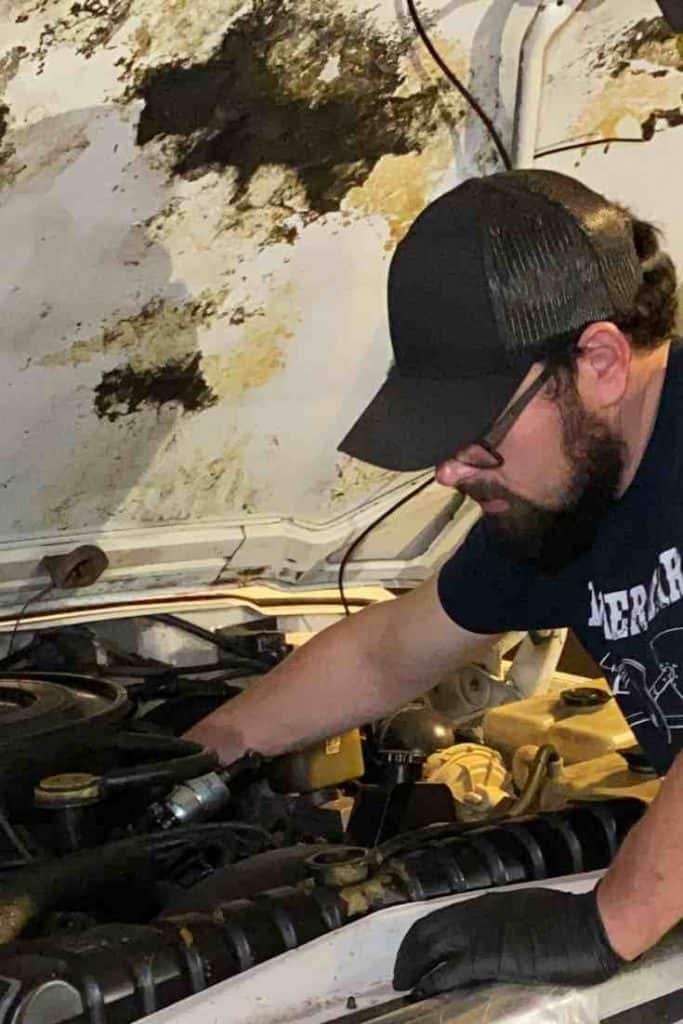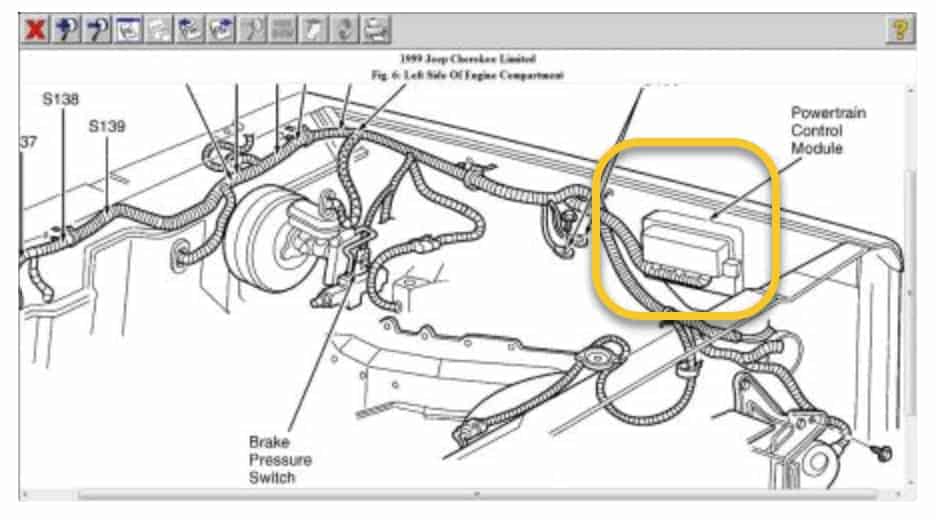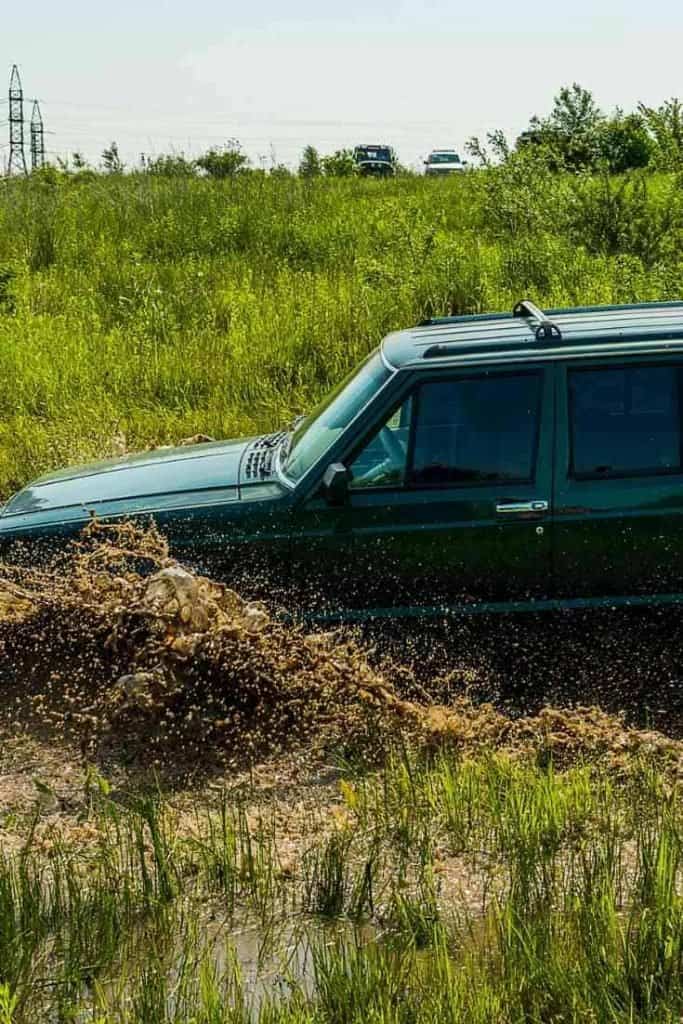97 Jeep Cherokee Will Start Run for 5 Minutes and Then Shut Down and Will Not Start Again
Although it is one of the nearly recognizable models on the SUV landscape, the Jeep Cherokee has been plagued through the years by commuter complaints most chronic stalling.
There are countless instances of Jeep Cherokees stalling while traveling at low speeds or high speeds, driving straight or losing power in the midst of a turn.
While certainly frustrating, these stalls tin can too have serious consequences.
Why Your Jeep Cherokee Keeps Stalling and How to Fix It
Here is why your Jeep Cherokee keeps stalling: Many stalling bug can be attributed to the PCM or crankshaft sensor and there are steps you can take to fix these issues yourself or at the very least indicate your mechanic in the correct direction
Virtually stalling problems pertain to model years starting from the mid-1990s all the way to recent model years, and have occurred with virtually every trim level.
Jeep Cherokee XJ'south and Cherokee KJ'due south with less than 25,000 miles have experienced stalling problems, but most cases seem to involve vehicles with 75,000 miles or more on them, and it is with particular reference to these older vehicles that the PCM is nigh relevant.
In this article, we examine the most common causes for Jeep Cherokee stalls and how to prepare them. A deep dive into actual solutions offered past the most trusted sources, boyfriend Jeep Cherokee owners like you lot.

What is a PCM and What Does it Accept to practice with Stalling
The PCM (Powertrain Control Module) is a computerized arrangement that monitors and controls various systems on a Jeep Cherokee, including vital operations such equally engine timing, the transmission (gear shifting), anti-lock braking, fuel to air ratio mixing and quite a few others.
In other words, the PCM functions as the vehicle's brain, responding to dozens of sensors and instructing systems how to work.
Equally is now apparent to many Jeep Cherokee owners and their mechanics, a faulty PCM tin manifest itself through a variety of atmospheric condition, the almost notable of which is sudden stalling while the vehicle is being operated.
Other symptoms include engine knocking or stuttering, erratic or jerky gear shifting, difficulty starting the engine and a noticeable drib in fuel efficiency (gas mileage).
A significant number of drivers accept reported that not only did their Jeep Cherokees lose engine power while driving, but in nearly all cases, stalling occurred without whatever warning and with no indicator lights on the instrument console.
Some drivers take reported that they did not even realize their vehicle had stalled until the accelerator, brakes, or ability steering failed to reply.
What Does the PCM Look Like and where can it be Found

The PCM on a Jeep Cherokee is contained in a metal, box-like module that is mounted to the firewall (insulated sheet of steel that separates the engine compartment from the rider compartment) under the vehicle'southward hood.
It consists primarily of a excursion board underneath a protective plate, and there are typically three wire connectors going into the module.
On most, if non all, Jeep Cherokee trims and model years the PCM will exist on the passenger side of the engine compartment, mounted to the firewall behind the coolant reservoir and held in place past three or four long bolts.
For full admission to the PCM it may be necessary to remove the coolant reservoir, specially if the PCM itself needs to exist removed for testing or repair.
Common PCM Problems
Because the PCM bears such a heavy brunt in monitoring and controlling so many of your Jeep Cherokee's vital systems, it is understandable that a faulty PCM could wreak such havoc on the vehicle's operability.
In fact, misdiagnosed PCM problems have often been mistakenly attributed to engine and manual bug resulting in unnecessary and oftentimes costly, part replacements.
PCM Embrace Plate Screws are Shorting out the Excursion Lath
Incredibly, one of the well-nigh mutual PCM issues has nothing to practice with the excursion board or wiring harnesses themselves.
It has been found that on some Jeep Cherokees the screws (there are two of them) that adhere the protective plate to the PCM housing are too long and can cause a brusque circuit to occur on the PCM board, resulting in desultory and unpredictable stalling of the vehicle.
There are several elementary solutions to this particular problem:
- Replace the existing screws (they are likely Torx screws) with shorter ones; the original screws are approximately ½ inch long, supervene upon with ¼ inch or ⅜ inch.
- Remove the existing screws and cutting or grind off approximately ¼ inch from each and re-insert.
- Remove the existing screws and add several metal washers to each before re-inserting.
- Note: the two screws in question are located next to the wire connectors on the PCM module. These are distinguishable from the three bolts (much longer in length) that fasten the module to the firewall of the vehicle.
- Annotation: if it is necessary to disconnect the wire connectors to the PCM module, you must also disconnect the basis for the vehicle'south battery every bit this is the power source for the PCM.
Faulty Wiring or Incoming Voltage
At that place are other scenarios where the PCM itself is in fine working order, but other factors are causing it to malfunction. These include:
- Poor electric contact points either on a wiring harness or the connector on the PCM module;
- A low voltage trouble caused past a ground curt in the motorcar battery'due south connexion to the Jeep Cherokee frame/body;
- I or more than faulty or broken solders on whatsoever of the wiring or power connections.
If you are handy with a multi-meter or know how to solder, yous may be able to diagnose and repair these problems yourself.
Information technology is besides a possibility that the PCM itself, specifically the circuitry, is faulty and needs to be replaced.
Ane of the difficult aspects of diagnosing a malfunctioning PCM is that it can put out various trouble or trouble codes that tin can send an auto mechanic on a wild goose chase troubleshooting other components in your vehicle.
Whether replacing the PCM yourself or having a professional do it for yous, information technology is of import to keep in mind that PCMs are specific to the vehicles on which they are installed.
With some manufacturers, it is model-specific while with others, the PCM tin be specific to a particular engine blazon or trim level. They will likewise vary from model year to model year as technological advances and new features are incorporated.

How a Faulty Crankshaft Sensor can Cause Stalling
The crankshaft sensor (also referred to as the crankshaft position sensor) is an extremely vital component of today's gas vehicles.
Essentially the crankshaft sensor monitors the relative positions and/or rotational speed of the engine crank (a cylindrical shaft that converts the linear energy created by the pistons into rotational energy to create movement).
The data that the sensor gathers is and then transmitted to the vehicle's onboard computers to control ignition timing and fuel injection timing.
In other words, this device, which looks like a phone machine charger accessory, is responsible for reading and relaying data that your engine needs to run smoothly.
Symptoms of a failing or malfunctioning crankshaft position sensor mirror many of the complaints raised by frustrated Jeep Cherokee owners with regard to the stalling bug plaguing their vehicles:
- Difficulty starting the engine;
- Sudden loss of power while vehicle is running;
- Rough idling;
- Poor dispatch;
- Vehicle shudders and engine vibrates.
Replacement of the crankshaft sensor is a straightforward procedure, and the replacement price relative to engine or transmission parts is minimal.
Other Possible Causes of Stalling
As the stalling problems affecting Jeep Cherokees encompass a broad range of model years, engine sizes and trim levels, causes other than PCMs and sensors have been identified.
Fuel Pump Vent Hose
Some Jeep Cherokee owners have reported that their stalling and crude idling problems were caused by a asunder fuel pump vent hose that took minutes to diagnose and fix, despite the presence of multiple error codes indicating problems with other components.
Software Glitches
In 2018, Fiat Chrysler (parent visitor of Jeep) issued a recall notice affecting more than 86,000 Jeep Cherokees.
The notice brash owners of model year 2019 Cherokees with two.4-liter engines that a software problem could cause their vehicles to stall when decelerating to a stop.
Owners were advised to take their vehicles to Jeep dealers for re-programming their PCMs with updated software.
Jeep Recall Check via the Official Mopar Site
Jeep Cherokees are widely considered the original mainstream SUV and are every bit much a part of the American automobile landscape as the Corvette and Cadillac.
Despite the endless number of stalling incidents through the years, Jeep Cherokee owners remain as fiercely and steadfastly loyal to their honey SUVs today every bit when the showtime models rolled off the assembly line.
Source: https://fourwheeltrends.com/why-your-jeep-cherokee-keeps-stalling-and-how-to-fix-it/
0 Response to "97 Jeep Cherokee Will Start Run for 5 Minutes and Then Shut Down and Will Not Start Again"
Post a Comment